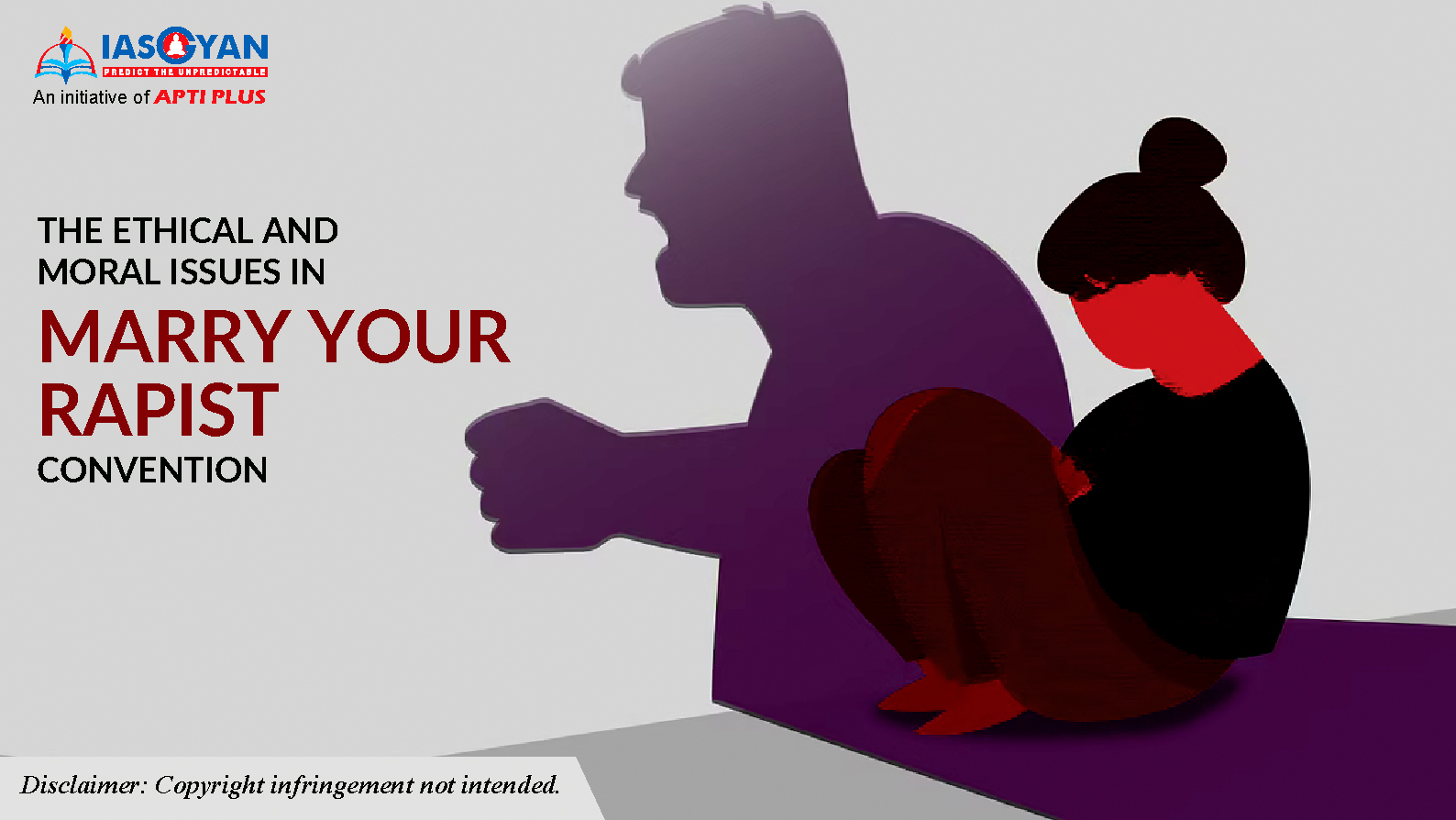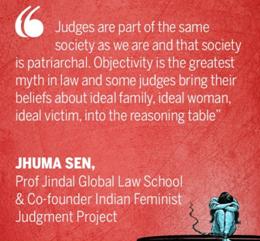




|
In 2017, a World Bank Group report claimed there were 12 countries left with marry-your-rapist laws: Angola, Bahrain, Equatorial Guinea, Eritrea, Iraq, Jordan (repealed in August 2017), Lebanon (repealed July 2017), Libya, Palestine, the Philippines, Syria and Tunisia (repealed in July 2017). |
There are a number of Disturbing Questions in the first place
In a nutshell, these conventions:
Violates Constitutional Rights
Ignores recommendations
Judges are not the ‘other’ but part of this very patriarchal society. And “Marriage” as relief
is a wrong moral notion, bringing back the honour to the woman and her family.
|
When Judiciary falls into the Patriarchal Trap! Justice Neena Krishna Bansal once remarked: “It becomes very difficult for us as judges to strike a balance between the social reality and the legal binding.” A “rapist degrades and defiles the soul of a helpless female” and inflicts a “serious blow to the supreme honour of a woman, and offends both, her esteem and her dignity” (Supreme Court in Deepak Gulati vs state of Haryana, 2013). “The victim of rape grows with traumatic experience and an unforgettable shame haunted by the memory of the disaster forcing her to a state of terrifying melancholia,” noted the Delhi High Court in Rohit Bansal vs State (2015). In 2015, the Madras High Court, in a highly criticised order, granted bail to a convicted rapist and advised a “compromise” between him and his unmarried victim, who had subsequently become pregnant. |

|
Time to think! When instead of penalising the accused, the hon’ble court provides them bail, caveat as marriage.. What does justice look like for the rape survivor? Justice that walks through the institution of marriage.. Justice, that views children born out of rape as an outcast and hence legitimized only through marriage… Justice, that writes in the voice of patriarchy. Justice, that adheres to the language of the oppressor… |
In its own Words Supreme Court had said: “Male chauvinism has no room in a civilized society and
the "obnoxious" act of even eve-teasing affects justice and the rights of a woman.”
© 2024 iasgyan. All right reserved